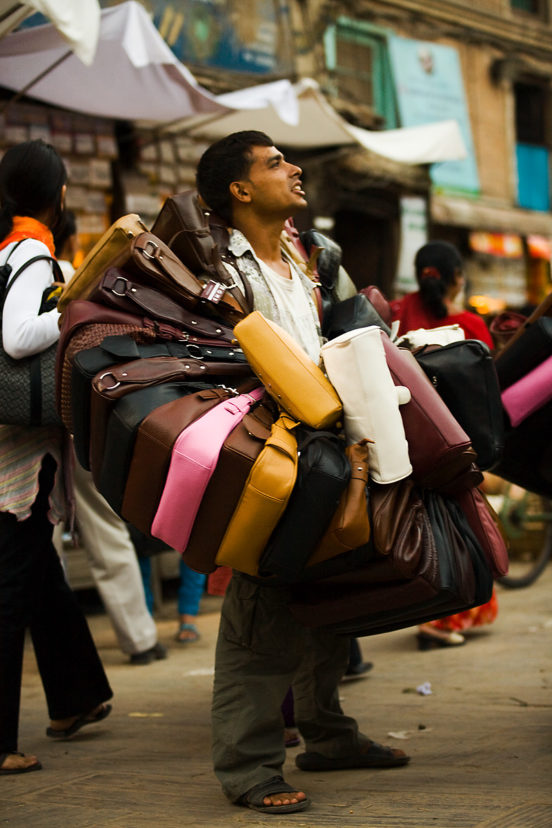In recent months, people’s mobility has been synonymous with the transmission of Coronavirus, and the Covid-19 pandemic has had a devastating impact. Global economies are in peril and the very future of humanity has been seriously threatened. Currently, there is almost no country in the world which has not been affected. Countries have adopted various measures to tackle this threat. Complete or partial lockdowns in mobility, in tandem with social distancing, have been seen as the most important primary measures to minimise infection rates.
Global lockdown and its impact on low-skilled and unskilled migrants
Considering how contagious Coronavirus is, most countries are following lockdown guidelines, which have created nightmare situations for many migrant workers. For example, India’s swiftly imposed lockdown has created havoc in the lives of migrant workers, causing suffering and uncertainty, as these workers have had no time to plan and prepare. They were forced to pack up their belongings and head home, and all within four hours. Within a short time, hundreds and thousands of migrants were out on the street, starting their journeys home.
Regional and global news channels showed images of migrants stranded in railway stations and walking along India’s long dusty roads. The sight of these men and women, some with babies on their backs, and carrying their possessions, was reminiscent of similar historical journeys made in 1947, at the time of Partition, when the Indian Independence Act came into force.
Following government-imposed lockdowns in several countries, the Nepal Embassy in New Delhi (and also in the Gulf states) issued a notice that all Nepali migrants should stay where they were, and not to break the government’s advice. They were not to travel, they were to maintain a social distancing policy, and to follow Government advice. However, as Nepali migrants in India revealed, many had nowhere to stay. They lost their jobs when factories, shops, and businesses were closed and construction sites halted, and landlords then asked them to vacate their accommodation.
Similarly, reports from journalists from the Gulf States have begun to emerge about the situation of Nepali migrants and of other migrants in Qatar, UAE, and in other countries, who were also left stranded following the lockdown. Despite the Covid-19 outbreak and social-distancing advice, some migrant workers have had to continue to work on the construction sites for the Qatar Olympics, and their lives remain as usual. A large number of migrant workers – Nepalis and other nationals – live in small over-crowded dormitories and have little choice for social distancing and self-isolating. A notable rise in Covid-19 cases in the Gulf States has been reported, with the majority of positive cases being migrant workers. The health and wellbeing of migrant labourers has always entailed a higher degree of occupational risk, even before the Covid-19 outbreak, as employers rarely put the needs of migrant labourers before profit. The crowded accommodation and the lack of choice about social distancing for low-income migrants means that the Covid-19 crisis will continue until migrants’ accommodation and other issues are addressed. Countries in Asia are already experiencing a second wave of Covid-19 transmission and migrants are hit the hardest by this.
Time for better welfare and justice for all migrants
It is clear that the concept of ‘social-distancing’ is achievable only by the most privileged groups in societies, not to those living in slums in Mumbai, Dhaka, and on construction sites in Qatar. When migrant workers lose their jobs and are evicted from their accommodation, social distancing becomes impossible. Most governments seem to have given little thought to the plight of migrant workers, and have failed to adopt any measures to support these underprivileged groups. The safety of vulnerable migrants has been an issue of low priority for employers and the governments of destination or home countries. Nepali and Indian authorities have turned a blind eye to the hundreds and thousands of workers stranded in India, and those at the India-Nepal border. Now is the time for us to learn a historical lessons from this pandemic: that all migrants should have access to basic social security and living wages; that governments should treat migrants with compassion, dignity, and respect. In global efforts to manage and control a pandemic effectively, the rights and welfare of migrant workers should not be sacrificed.
This article was originally published on the Justice in Global Health Emergencies & Humanitarian Crisis website: https://www.ghe.law.ed.ac.uk/nepali-migrant-workers-during-the-covid-19-crisis-by-radha-adhikari/
Radha Adhikari is a Research Fellow in SSPS, and currently working on a project examining the ‘Documentation of Nepali migrants’ death, injury and ill-treatment in transit and destinations’. Currently, the research fieldwork has been on hold due to Covid-19 outbreak.
(https://www.dailytravelphotos.com/archive/2009/12/20/)
(https://www.dailytravelphotos.com/archive/2009/12/20/)










Comments by Ritti Soncco